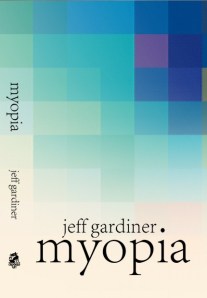 I’m pleased to welcome Tim Taylor to my blog; author of the brilliant Zeus of Ithome. He’s here to give us some context and background to his historical novel.
I’m pleased to welcome Tim Taylor to my blog; author of the brilliant Zeus of Ithome. He’s here to give us some context and background to his historical novel.
Thank you very much for inviting me onto your blog, Jeff. This is the third in a little series of blog posts I’m doing about my writing. The first two (kindly hosted by Nancy Jardine and Alison Lock) covered the relationships between history and fiction and between fiction and poetry. Today I’d like to talk about the ancient and the modern.
Every story occupies a time and a place. One of the things I love about historical fiction is the fact that this context is outside the ordinary experience of the reader. That is not unique to historical fiction, of course – it is also true of a novel like Igboland (at least for British readers). This other-ness of the setting is something I enjoy in itself – recreating it through a combination of research and imagination is very satisfying. But another thing I like about it is the opportunity to compare the place and time of the novel with the present; to draw parallels and understand differences.
My novel, Zeus of Ithome, set in ancient Greece, follows the struggle of the ancient Messenians to free themselves from three centuries of slavery under the Spartans. That story is in some ways unique, but it also has resonances with more recent events. An obvious parallel to draw is with the emancipation of slaves in the USA and other countries in the nineteenth century. The experience of African slaves would have had much in common with that of the Messenian helots – both were regarded as fundamentally inferior by their masters, though in the case of the Spartans their sense of superiority was more cultural than racial. Both were forced to work the land and subjected to frequent brutality and sometimes rape and murder.
 The differences are also interesting. The Messenians were very much a special case: they attracted sympathy and eventually support from elsewhere in Greece, not because they were slaves but because they were Greeks who were slaves. There was none of the enlightenment revulsion against slavery itself that has gradually spread throughout the modern world. All Greek states kept slaves, though for the most part they were better treated than the Messenian helots, and would continue to do so for many centuries to come.
The differences are also interesting. The Messenians were very much a special case: they attracted sympathy and eventually support from elsewhere in Greece, not because they were slaves but because they were Greeks who were slaves. There was none of the enlightenment revulsion against slavery itself that has gradually spread throughout the modern world. All Greek states kept slaves, though for the most part they were better treated than the Messenian helots, and would continue to do so for many centuries to come.
Ancient Greece was the birthplace of our western civilisation. So much of what we see as central to our culture began with them, and indeed was far more highly developed in their era than for much of the intervening period. Thus readers will find things in Zeus of Ithome that seem surprisingly similar to our modern society. The early democracy that began in Athens and had spread to Thebes and elsewhere by the fourth century BC, when the novel is set, was different in structure to modern democracies – it was a participative system, where every citizen could speak in the assembly, rather than a representative one. Nevertheless, the debates that were held in those assemblies must surely have had a fair amount in common with those in modern parliaments.
Yet, at the same time, other aspects of Greek society are quite alien to us. Though this period saw the beginnings of science and philosophy, the beliefs of most ordinary Greeks would strike us as quaint superstitions. The religion which pervaded every aspect of their lives was not the monotheism that dominates today, with its tightly controlled belief systems based upon holy books, but a chaotic paganism of numerous personal and capricious gods, who lived on the borders of the human world and were thought to intervene in it, demanding animal sacrifices in order to secure their favour. And every quirk of the weather; even the behaviour of animals and the arrangement of their internal organs (as discovered on sacrificing them) – not to mention, of course, the ambiguous pronouncements of oracles – was thought to be a clear sign of divine will. Those seemingly primitive beliefs have a strong hold on the characters of Zeus of Ithome, and thus influence the development of the story itself.
For me, these parallels and contrasts between the time and place in which a novel is set and those in which it is read provide an extra dimension to the enjoyment of fiction – both the reading and the writing. I hope readers of Zeus of Ithome will share that enjoyment.

Tim’s website: http://www.tetaylor.co.uk/
Tim’s blog: http://www.tetaylor.co.uk/#!blog/c1pz
Author page on Crooked Cat website: http://crookedcatpublishing.com/our-authors/authors-t-z/t-e-taylor/
Zeus of Ithome on Amazon: http://www.amazon.co.uk/Zeus-of-Ithome-ebook/dp/B00G7S04D2
Video trailer: https://www.youtube.com/watch?v=-C2qR0x0mm4

















You must be logged in to post a comment.